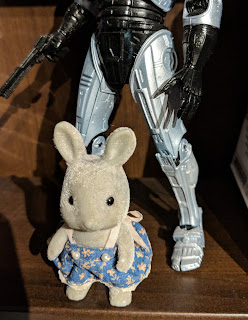American Fairy Tales
American Fairy Tales
L. Frank Baum, 1901
L. Frank Baum, 1901
I have a Kindle! I know, you're excited. And you know what is FREE on the Kindle?
Well, yes, lots of things are free on the Kindle, or on the internet and able to transfer to the Kindle, but that is not the point. The point today is that lots of collections of Fairy Tales are FREE on the Kindle. I've been busy, so short stories are just the ticket right now. Today's selection is a rather unique series of tales by L Frank Baum.
There is a fascinating harmony here between a practical "American" spirit and elements of traditional fairy tales. For example, fairy spirits make trouble for fashion-conscious shopkeepers, an aspiring young cowboy lassoes Father Time, a boy king has trouble with spendthrift hangers-on, a "wise and ancient chemist" creates magical bon-bons, an immigrant (who happens to be an evil wizard) attempts to turn troublesome schoolboys into pigs.
They are a bit unbalanced in tone. I think the most successful ones read rather like a child-friendly episode of the Twilight Zone, i.e. an 'average' person faced with a fantastic situation. Of the twelve stories, most have this structure. Two stories, "The Laughing Hippopotamus" and "The King of The Polar Bears", read like a poor attempt at imitating Kipling's Just So Stories, and I probably liked those two the least, although there were still bright and intriguing moments in each.
"The Wonderful Pump" and "The Queen of Quok" are the most like traditional fairy tales. The latter succeeds because it balances its fairy tale kingdom setting with extremely, shall we say, down-to-earth characters. "The Wonderful Pump" is less enjoyable, and out of all the stories is probably the most directly moralistic, but I did enjoy the practical explanation for something that in a normal fairy tale would just be chalked up to "magic".
Most of the stories are characterized by a gentle yet sardonic humor: "If I could not make a glass dog bark I would be a mighty poor wizard," particularly when it comes to the occasional 'morals,' although I won't spoil the jokes by including one here.
My favorite story may be the first one, "The Box of Robbers", in which a young girl investigates a forbidden steamer trunk and reveals some rather unwelcome, yet amusing, houseguests.
"Perhaps in all the world there are not three other bandits so terrible and fierce as ourselves," said Victor, proudly.The whole collection is amusing, more so for adults than for children I would think, and short enough not to get repetitive. A couple of the stories are dated, especially in terminology ("Chinaman", etc.) but nothing terrible that I saw. And did I mention it was free?
"'Tis so," said the fat man, nodding gravely.
"But it's wicked!" exclaimed Martha.
"Yes, indeed," replied Victor. "We are extremely and tremendously wicked. Perhaps in all the world you could not find three men more wicked than those who now stand before you."
"'Tis so," said the fat man, approvingly.
"But you shouldn't be so wicked," said the girl; "it's--it's--naughty!"
Victor cast down his eyes and blushed.
"Naughty!" gasped Beni, with a horrified look.
"'Tis a hard word," said Luigi, sadly, and buried his face in his hands.
"I little thought," murmured Victor, in a voice broken by emotion, "ever to be so reviled--and by a lady! Yet, perhaps you spoke thoughtlessly. You must consider, miss, that our wickedness has an excuse. For how are we to be bandits, let me ask, unless we are wicked?"
3 Stars - A Good book



Comments
Post a Comment
FYI: Most comments are moderated, and will not appear immediately.